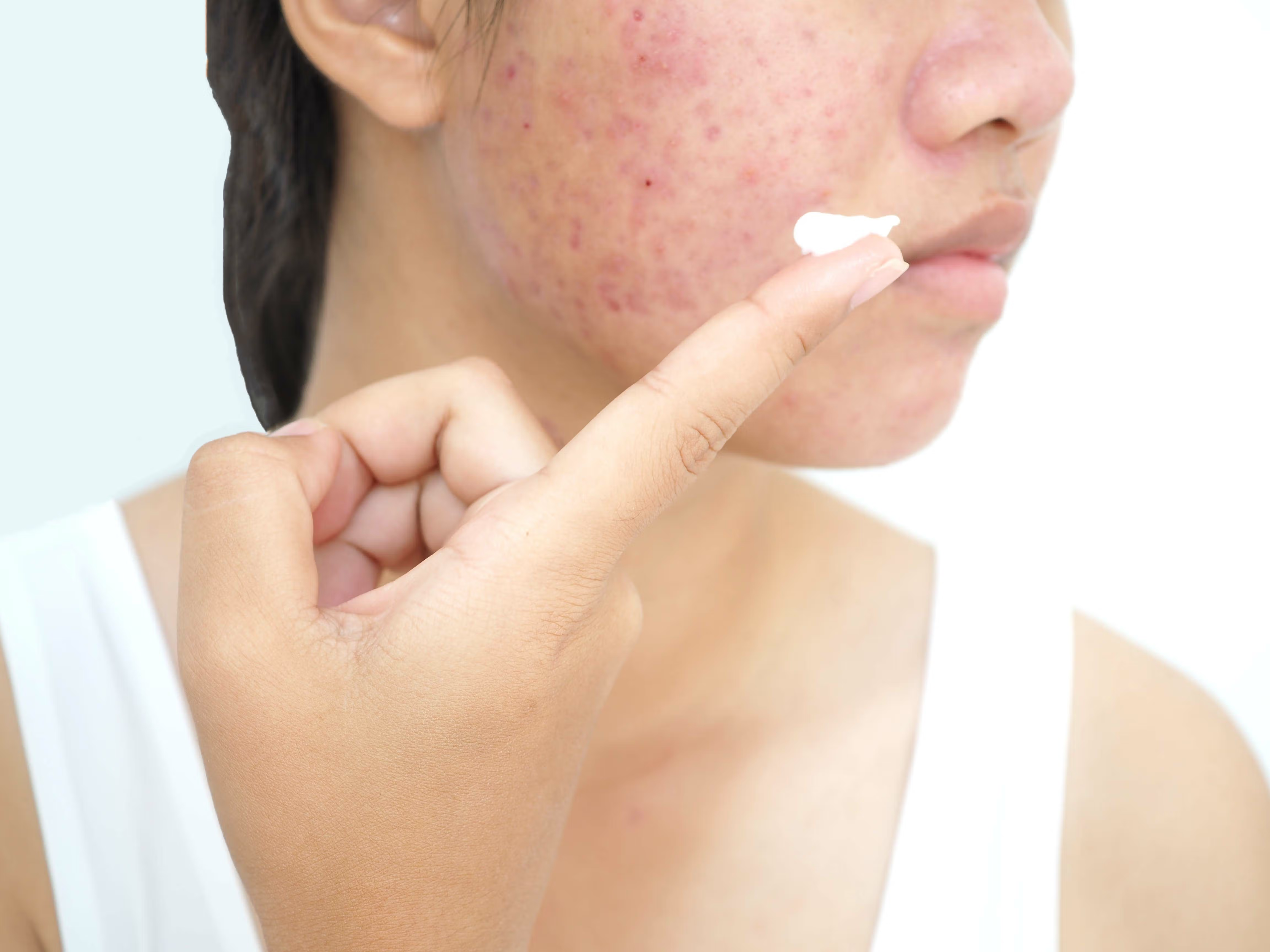- Case-Based Roundtable
- General Dermatology
- Eczema
- Chronic Hand Eczema
- Alopecia
- Aesthetics
- Vitiligo
- COVID-19
- Actinic Keratosis
- Precision Medicine and Biologics
- Rare Disease
- Wound Care
- Rosacea
- Psoriasis
- Psoriatic Arthritis
- Atopic Dermatitis
- Melasma
- NP and PA
- Skin Cancer
- Hidradenitis Suppurativa
- Drug Watch
- Pigmentary Disorders
- Acne
- Pediatric Dermatology
- Practice Management
- Prurigo Nodularis
- Buy-and-Bill
News
Article
Rehmannia Glutinosa Leaf Extract Led to a Decrease in Acne Severity and Improved Skin Hydration, Quality of Life
Author(s):
Supplementation with RGLE led to clinically significant improvements in patients with acne vulgaris, according to a study.
NuLiv Science, a neutraceutical ingredients company, recently reported findings from a study supporting the efficacy and safety of its product, Rehmannia glutinosa Libosch leaf-based extract (RGLE), brand name Verbasnol, in women with moderate to severe acne vulgaris.1
The study, published in a Dovepress online journal, Clinical, Cosmetic and Investigational Dermatology, found that patients using RGLE supplementation as a part of their skin care regimen experienced clinically significant improvements in acne severity, skin hydration, and overall quality of life.2
"These findings present a unique opportunity for skincare and beauty brands to leverage the research data to strengthen and differentiate their products in the market," said Richard Wang, MPH, NuLiv Science CEO, in a news release.1
Background and Methods
The randomized, double-blind, placebo-controlled, proof-of-concept trial, was carried out between June 2021 and October 2021 under the guidance of a dermatologist.
A total of 25 participants were enrolled from an initial pool of 33 screened candidates, with the intent to randomize them into 2 equal groups of 10 participants each for receiving either the active RGLE treatment or a placebo. Participants were recruited from a dermatology clinic in Mumbai, India.
Eligible participants were females aged 18 to 35 years with a body mass index ranging from 18.5 to 29.9 kg/m² and who had moderate to severe acne, indicated by Global Acne Grading System (GAGS) scores between 19 and 38. Participants were instructed to avoid other anti-acne treatments and continue their existing skin care regimen.
Exclusion criteria included recent use of oral anti-acne medications, steroids, antifungals, and antibiotics, as well as those with hormonal disorders or high coffee consumption.
Participants were directed to take one capsule of either RGLE or placebo daily after breakfast for a duration of 56 days. The placebo capsules were composed of microcrystalline cellulose and were identical in appearance to the RGLE capsules to maintain blinding.
Findings
At the study's outset, the average GAGS scores were 24.4 (RGLE group) and 24.08 (placebo group). By day 28, these scores had decreased to 19.1 and 20.67, respectively, reflecting a 21.72% reduction in the RGLE group and a 14.20% reduction in the placebo group. By day 56, researchers observed further reductions, with scores dropping to 17.7 in the RGLE group and 18.33 in the placebo group.
The study also measured reductions in specific types of acne lesions. Papule counts decreased in both groups, with a more significant reduction in the placebo group. By day 28, both groups saw decreases in sebum secretion on the forehead and cheeks, with a more pronounced reduction in the placebo group. By day 56, these trends continued, showing improvements in both groups.
Participants' quality of life concerning acne improved significantly in both groups. By day 28, the RGLE group had increased their Acne-QoL scores by 22.50 points, and the placebo group by 20.67 points. By day 56, improvements were further noted, with scores increasing by 32.1 in the RGLE group and 32.33 in the placebo group, indicating enhanced self-perception, emotional role, social role, and symptoms.
Both groups reported decreases in symptoms of pain and itch, with the placebo group experiencing slightly more significant reductions by day 56. Wrinkle severity showed minor improvements. The RGLE group saw a slight reduction by day 28, while no change was observed in the placebo group.
The responder analysis indicated that 80% of participants in the RGLE group moved from moderate to mild acne, compared to 50% in the placebo group. The RGLE group reported better improvements across radiance, complexion, luminosity, homogeneity, smoothness, texture, firmness, and hydration parameters compared to the placebo group by day 56.
Safety parameters, including pulse rate and blood pressure, remained stable and within normal ranges for both groups throughout the study. Liver and renal functions were also normal at the study's end, with no adverse events reported.
Conclusions
Moving forward, researchers called for future studies of a larger sample size to validate and generalize their findings.
"RGLE supplementation at a dose of 100 mg/day has shown a clinically relevant decrease in acne severity and, at the same time, improved the skin hydration and quality of life of the participants with acne," according to Srivastava et al. "The results of this preliminary study provide a valid proof-of-concept for designing a more extensive investigation to confirm the efficacy of RGLE supplementation in managing acne."
References
- Study finds NuLiv Science ingredient, Verbasnol, helps reduce acne severity and improves overall skin quality. News release. BioSpace. May 22, 2024. Accessed May 23, 2024. https://www.biospace.com/article/releases/study-finds-nuliv-science-ingredient-verbasnol-helps-reduce-acne-severity-and-improves-overall-skin-quality/
- Srivastava S, Huang SF, Jagtap MS. Assessment of the effect of rehmannia glutinosa leaf extract in maintaining skin health: A proof-of-concept, double-blind, randomized, placebo-controlled clinical trial. Clin Cosmet Investig Dermatol. April 18, 2024. https://www.dovepress.com/getfile.php?fileID=98430






